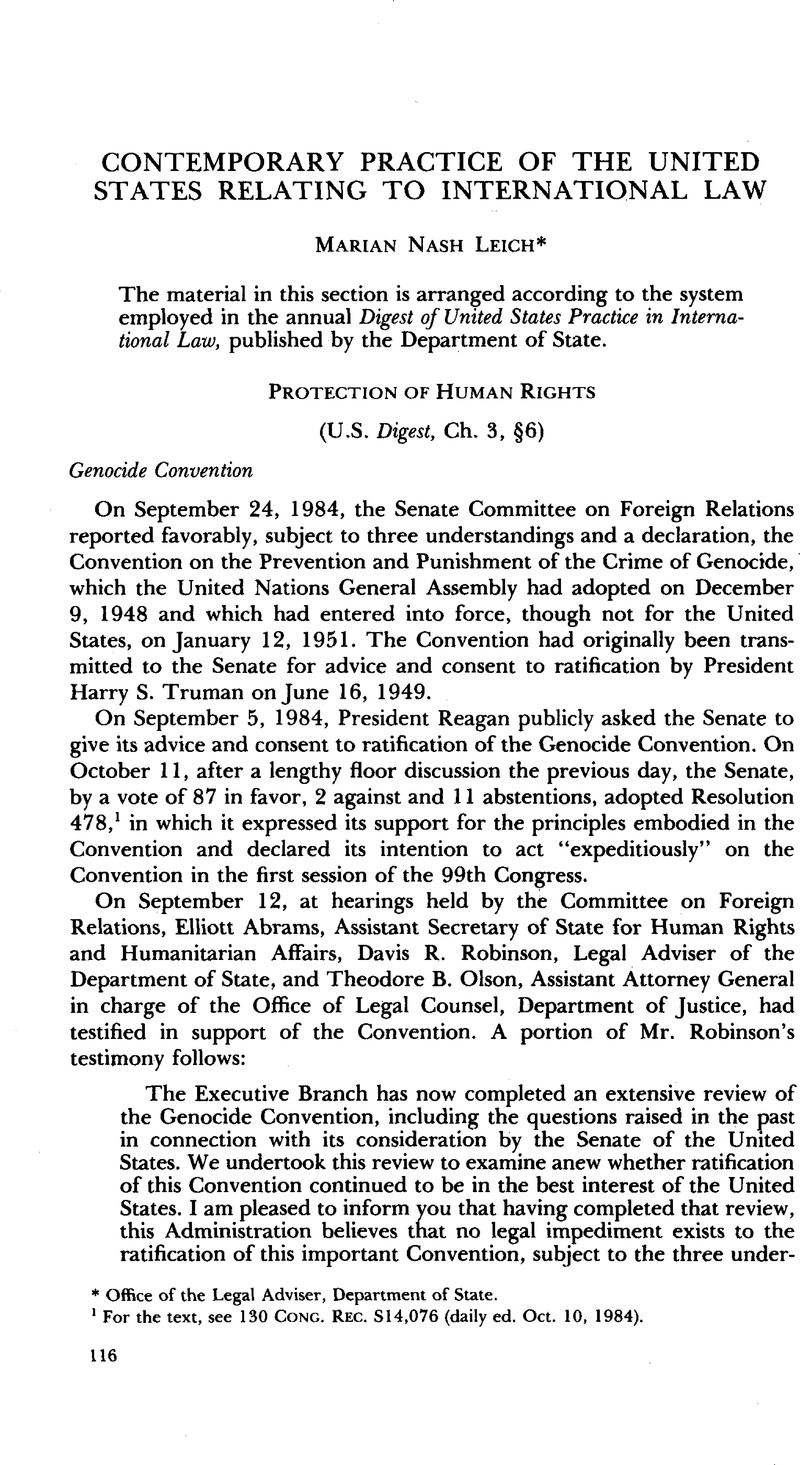No CrossRef data available.
Published online by Cambridge University Press: 23 March 2017

1 For the text, see 130 Cong. Rec. SI4,076 (daily ed. Oct. 10, 1984).
2 Genocide Convention: Hearing Before the Senate Comm, on Foreign Relations, 98th Cong., 2d Sess. 47–48 (1984) [hereinafter cited as Senate Hearing].
In his testimony, Mr. Olson reaffirmed the legal opinion recently expressed by Attorney General William French Smith to President Reagan, that no domestic legal obstacles to ratification of the Convention currently existed.
3 See S. Exec. Rep. NO. 50, 98th Cong., 2d Sess. 22 (1984).
* The text reads as follows:
The first part of article VI contemplates the obligation of the State in whose territory acts of genocide have been committed. Thus, in particular, it does not affect the right of any State to bring to trial before its own tribunals any of its nationals for acts committed outside the State. [Emphasis supplied.]
4 Senate Hearing, supra note 2, at 7–20. Footnote 2 of the committee’s report is indicated here by an asterisk.
The report set out a brief background to the Convention (id. at 2–3) and a summary of committee actions in its regard since 1970 (id. at 4–7). It included, as well, a list of the 96 states parties to the Convention, verified as of Sept. 12, 1984 by the Office of the Legal Adviser (id. at 36–37), and a list, “Multilateral Treaties and Other International Agreements of the United States Containing Provisions for Submission of Disputes to the International Court of Justice,” prepared under the same date by the Office of the Legal Adviser (id. at 37–41).
page 131 note 1 Dept. of State File No. P84 0147–1522. The enclosures to the Department’s note are not reproduced here.